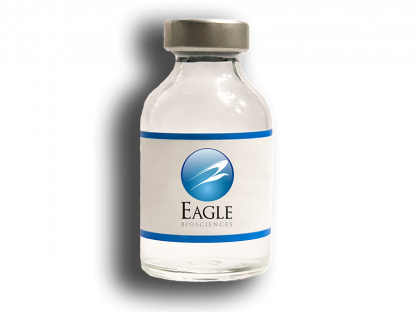L-Tryptophan Monoclonal Antibody
The L-Tryptophan Monoclonal Antibody is For Research Use Only
Synonyms:Anti-L-Trp antibody, (S)-2-Amino-3-(3-indolyl)propionic acid antibody, L-alpha -Amino-3-indolepropionic acid antibody, (S)-2-Amino-3-(3-indolyl)propanoic acid antibody, L-alpha-Amino-3-indolepropanoic acid antibody
Immunogen:Conjugated L-Tryptophan
Isotype:IgG1 k chain
Clone:Clone 4H11-A11
Specificity: When tested in competitive ELISA, the anti-conjugated L-Tryptophan antibody did not show any significant cross reactivity with Tryptophan analogs, including Tryptamine.
Size: 0.5 mg/mL
Storage: 4°C
Storage buffer: Before use, vial should be resuspended in 50 µL of ultrapure water. Store at +4°C for short term (1-2 weeks). Aliquot and store at -20°C for long term. Avoid repeated freeze / thaw cycles.
Protocols
Immunohistochemistry (IHC): Dilute at 1:200-1:2000. Perform heat antigen retrieval (pH=6) before initiating IHC staining protocol on paraffin-embedded and frozen sections
Immunofluorescence (IF): Dilute at 1:100-1:1000 on paraffin-embedded and frozen sections. Perform heat antigen retrieval and incubate with fluorescent secondary antibody conjugate.
Affinity & Specificity:
Competitive ELISA demonstrates that low amounts of Quinolinic acid conjugate are required to abolish antigen-antibody reaction (high affinity), while rising concentrations of Picolinic and Quinaldic acid conjugates do not affect the reaction (high specificity).
Background
L-Tryptophan is an essential amino acid, which is converted into Serotonin by tryptophan hydroxylase (TPH) in the gut or brain, or catabolized by various cell types into L-Kynurenine through indoleamine 2,3-dioxygenase (IDO1/2) or tryptophan 2,3-dioxygenase (TDO2). Abnormal tryptophanmetabolism is implicated in a wide range of pathological states, including metabolic and autoimmune diseases, cancer, viral infections, as well as neurodegenerative and mood disorders.
Related Products
L-Kynurenine Monoclonal Antibody
Anti-Conjugated L-Glutamate Monoclonal Antibody
Anti-Conjugated L-Serine Antibody


